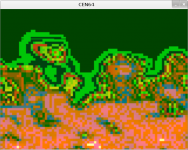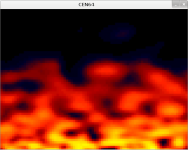F
Fanatic 64
Guest
The link to the framework is broken.Decided to license as BSD 3-clause. Do whatever you want with the source.
For updates, follow me on github and star the sources.
There are several (err, seven?) plugins; I'll be working on pushing them up to github and update both this post and the first post accordingly. None of them will be of much use until I upload the framework that ties all the plugins together (which will likely be done last to make sure everything checks out).
** Primary Module **
Framework: http://github.com/tj90241/cen64
** Submodules **
AUDIO: http://github.com/tj90241/cen64-audio
BUS: http://github.com/tj90241/cen64-bus
PIF: http://github.com/tj90241/cen64-pif
PI: http://github.com/tj90241/cen64-rom
RSP: http://github.com/tj90241/cen64-rsp
VI: http://github.com/tj90241/cen64-video
VR4300: http://github.com/tj90241/cen64-vr4300
To compile: You only need to clone the framework. git will take care of pulling each individual submodule for you. More TBA.
New BSD License? Sounds good to me.


